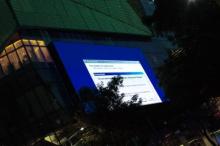Business intelligence for dummies

Want to know what BI is but were always afraid to ask?
Here is a use case that covers 90% of Business Intelligence software use in the real world.
Imagine an Excel table containing banking transactions that you exported from your online banking system.
Once they are exported, you may be tempted to construct pivot tables, to view e.g.
- The bank accounts you credited for the last 12 months;
- the ratio between credit and debit by month;
- the expenses from your banking cards compared to those of your wife.
All of these pivot tables will be constructed for you in a matter of seconds, or even milliseconds.
Unfortunately, the construction of pivot tables does not scale up. A bank manager trying to construct a pivot table to identify the most debiting accounts or to identify the accounts performing most of transactions over a month is likely to wait many hours until his pivot tables are calculated. This is because the amount of transactions he is analyzing is likely to be in the hundreds of thousands, and more. He will also try to lump together much more information by adding columns with addresses, information on insurance policies of account holders, etc, thus growing the table to tens, sometimes even hundreds of columns, aggravating the performance issue.



